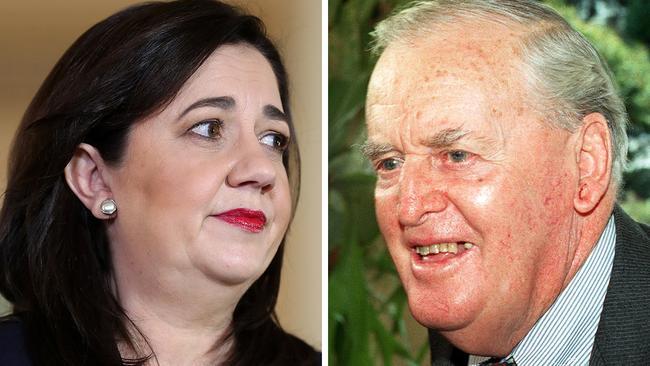
The iconic statement of the times was the remark last week by Queensland Premier Annastacia Palaszczuk: “People living in NSW have NSW hospitals. In Queensland we have Queensland hospitals for our people.” There should be no place for such protectionist and contemptible remarks by a prominent leader.
This is straight from the Bjelke-Petersen playbook a generation ago. It repudiates the decades’ long narrative that has underwritten Australia’s prosperity — that of an open economy within our national borders and a mobile population able to take advantage of markets and services.
It resurrects a discredited, reactionary culture of Fortress Australia where state protectionism was the route to political success. Unless this is curbed, such sentiment flowing more widely into pandemic and post-pandemic political culture will leave Australia diminished. The mentality most state leaders are encouraging is being more risk adverse, each state for itself, living under more government controls, acquiescing to state regulation of our lives, relying on federal funds and waiting for some cyclical economic recovery.
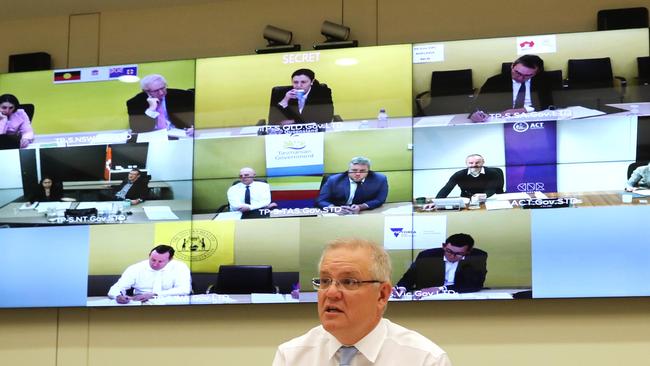
This framework won’t work. But premiers are running the health response and if this is not their vision they need to tell everybody. Now we are seeing grudging, belated concessions to common sense after pressure from the Morrison government and publicity given to cases of heartless cruelty. Concessions have been extracted on health cases, movement of agricultural workers and creation of buffer zones on some borders to help border communities.
These decisions should be followed by far greater action. In truth, they are marginal gains when the real issue is the need to abandon those border closures that are unwarranted. Despite our progress Australia is in danger of losing its way in the battle against COVID-19 in striking the balance in its health and economic dimensions. We are being left behind by Asia where domestic travel is surging in many countries while Australia looks a flawed jurisdiction.
The hypocrisy about concern for mental health and low-income people is nauseating from politicians who champion border closures that are fundamental in driving mental health and personal hardship.
Australia’s battle against COVID-19 is undermined by two central problems. First, the fixation of most premiers on elimination of the virus, a quest that earns majority electoral backing since it has the illusion of prioritising the public interest. This is neither the policy of the Morrison government nor the advice from the commonwealth health chiefs.
Business Council of Australia chief executive Jennifer Westacott nailed the dilemma: “Anything above zero is seen as a serious policy failure.” That guarantees an unbalanced pandemic policy response and a flawed economic recovery. It is successful populist politics for premiers but turns Australia into a fragmented jurisdiction in confronting the greatest challenge of a lifetime.
Scott Morrison repeats endlessly that his government has a “suppression” strategy, which means we must live with the virus and become experts in containing it. But that’s hard. It makes the political sales job of premiers permanently difficult. It’s why the Prime Minister said on Tuesday the aim was to “reopen Australia right across the country” and why last week he praised NSW for being “the gold standard” in combating its outbreaks while refusing to turn off economic activity. Morrison talks up hope, but hope needs to be buttressed by a coherent policy, and that’s missing.
The problem is typified by Victorian Premier Daniel Andrews’s bid to seek from the Victorian parliament extension of the state emergency powers — he wants another 12 months to give the executive the power to restrict the autonomy of people and businesses. Andrews said his proposal was to ensure “we can legally make the changes our health experts need to keep us safe” and said it was about “saving lives”.
These are the weasel words of pandemic protectionism. The arrogance is beyond belief. These are extraordinary powers sought by a premier whose proven incompetence over hotel quarantine has made many Victorians unsafe in the first place. Andrews has forfeited the right to such powers for the time he wants. This request comes from a premier who seeks extended arbitrary controls over Victorians but has singularly failed to provide a credible plan for an exit strategy for his state.
Andrews’s position reveals the policy and psychological failure of the campaign against the virus. People and business are kept in the dark. Nobody can plan. No benchmarks exist. Confusion abounds on what is the exact strategy.
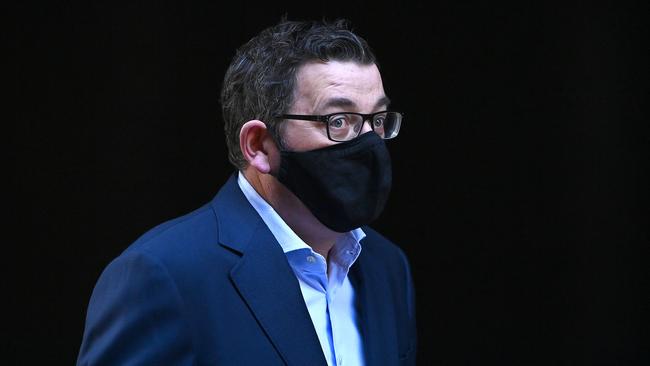
Josh Frydenberg said on Tuesday that “up to 400,000 Victorians will either lose their job or see their hours reduced to zero” by the second wave. Referring to concern over the Andrews request for extended emergency powers, the federal Treasurer said: “I share those concerns” and said the Victorian government had to explain itself, a significant distancing of the Morrison government from the Andrews plan.
This leads to the second central problem. It was exemplified on Monday with the statement sent to the national cabinet from 27 business groups — including the Australian Chamber of Commerce and Industry, the BCA, the Australian Industry Group and the Australian Retailers Association — warning the country had fallen into “a patchwork of inconsistent state and territory-based rules that ignore the reality of the way small and large businesses operate across borders”.
While accepting the right of states to apply their own measures the business groups said the situation “cannot continue unchecked”. Westacott said border restrictions were “impacting families, destroying jobs and crippling the Australian economy’s ability to recover from the pandemic”.
The border mentality is self-defeating. It implies an endless cycle of easing and hardening restrictions. Australia needs to resurrect its strategy to reopen the economy. Many state and territory borders are closed without justification — disguised by self-serving state health advice. While the NSW-Victoria closure was essential, other closures between jurisdictions that have very limited cases are unaccompanied by persuasive justifications.
The weakness of Morrison’s position is embarrassing. His constant pressure on the states is showing some returns and national cabinet made modest progress last week agreeing to have a national definition of a coronavirus hotspot, given restrictions are made on the basis of what is, or is not, a hotspot. Morrison keeps warning, pointing to New Zealand, that border closures are no substitute for testing, tracing and virus containment.
Yet so popular are the border closures the Prime Minister cannot even directly criticise them or be seen to support the High Court case that will test whether the closures are unconstitutional as well as economically irresponsible. On display is a lack of proportionality and balance in policy responses because the states control the health response but the federal government finances the economic bill.
The omens of future strife cannot be missed. The debate about the policy response needed to re-open the economy is alarmingly weak. That needs a mix of strong government action on infrastructure, skills, fiscal support and tax cuts combined with a strong private sector revival around investment incentives, a flexible industrial relations framework, more streamlined environmental approvals and the essential aspect of job restoration.
The premiers think they are political heroes, defending their poor subjects. But let’s state the realities: the border closures are overkill when other measures could be used; they reflect a political decision taken by premiers that coincide with their electoral self-interest; they damage Australia as a constitutional and economic entity; and they represent a serious regression in our national capacity to manage a crisis when our success, a few months ago, was conspicuous.


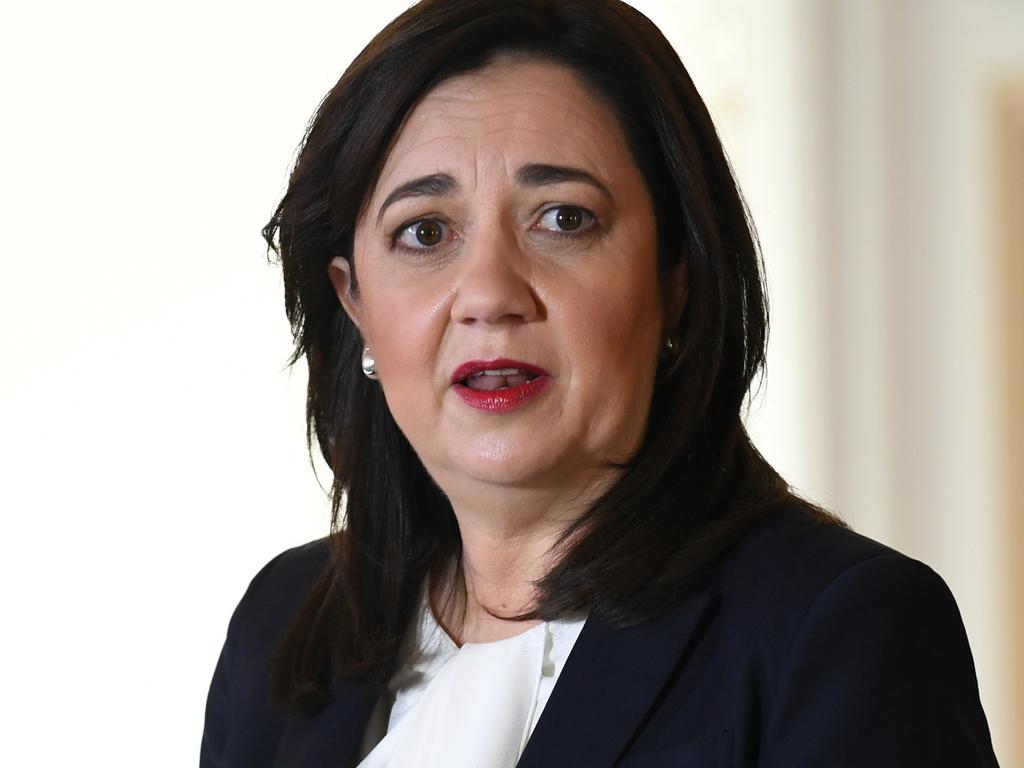

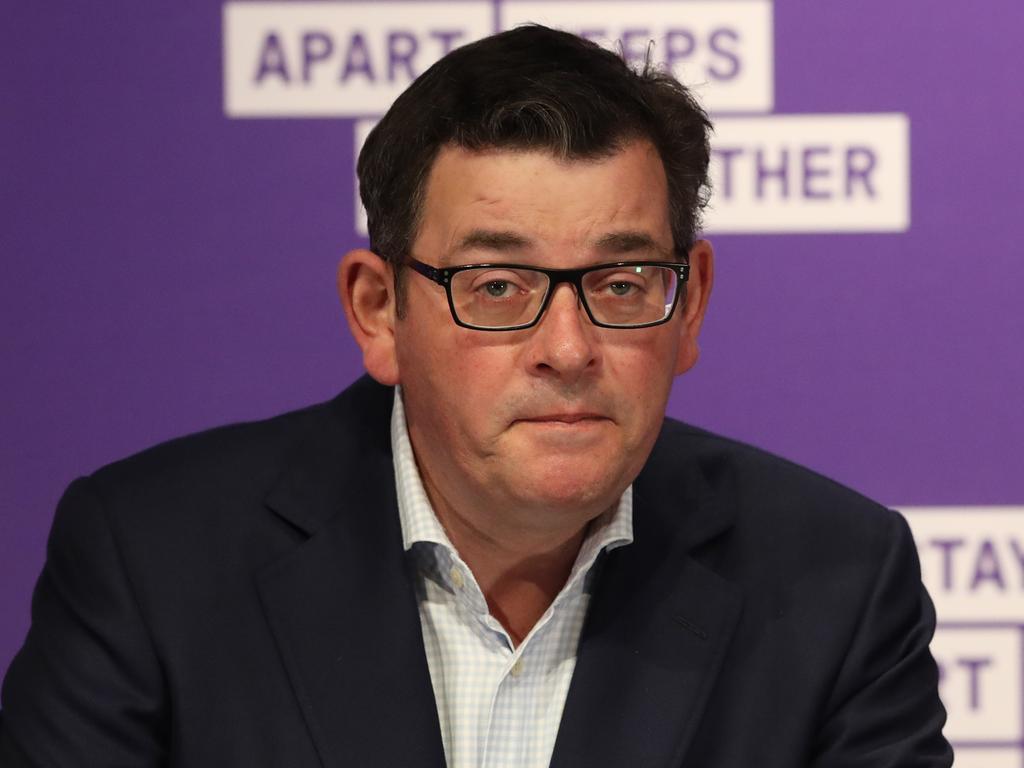



With distinct improvement in Victoria the curse of pandemic protectionism is the main threat to Australia given the nation’s fight against COVID-19 is derailed by state populism, public confusion about the core strategy and unforgiving complacency on economic recovery.